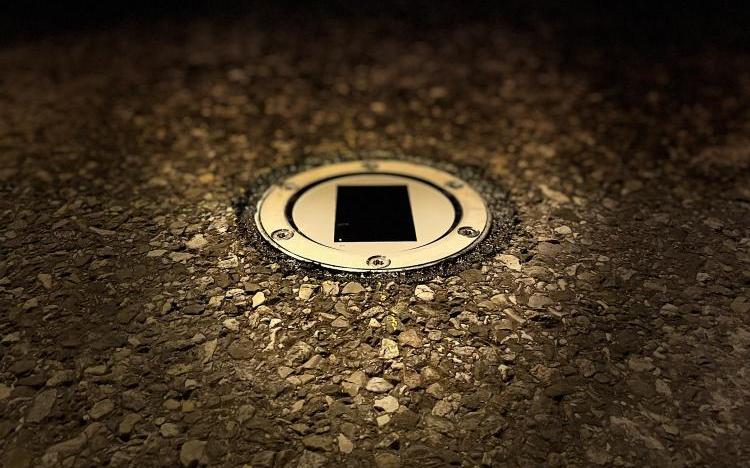Mr Tomes, many cities are struggling with traffic jams and congested traffic. What is the reason for this?
There can be numerous different reasons. In addition to commuter and leisure traffic on the main traffic routes, a large part of urban traffic is caused by the search for parking spaces, and we're talking about 30 to 40 percent "search traffic" here. As many cities have started to reduce the number of parking spaces, it is even more important that the existing spaces can be used efficiently. It should be possible to reach free parking spaces without negatively affecting the rest of the traffic. In order to achieve this, urban and traffic planners need real-time data, and this is where LTS AG can provide support: Our smart ground sensors open the way for intelligent traffic and parking management.
To what extent do the sensors help to reduce traffic?
The sensors are installed on roads, at traffic lights, in car parks or on the ceilings of multi-story car parks. They are modular, energy self-sufficient, and, unlike similar measuring systems with induction loops or parking guidance systems, they can be installed in just 30 minutes by drilling a core hole. No roads have to be closed off and opened up, no cabling is needed, and the installation and maintenance costs are much lower than with older systems.
Once they are in operation, the sensors provide real-time information about utilization and traffic volumes at the respective location via the connected gateway. The data collected in this way is stored and processed in the cloud. It then supports motorists in their choice of route or search for a parking space, and enables traffic planners to take targeted measures to optimize traffic, for example, by means of appropriate signals or referrals to less busy roads or parking zones.
However, the areas of application of the sensors go much further: In the spirit of the "Internet of Things" (IOT), the data, once available, can be used for a wide variety of purposes, from real-time information on the utilization of a car wash, to the occupancy of charging stations for electric cars, to scientific analyzes for traffic flow optimization.
In which cities or countries are LTS AG sensors already in use?
In Switzerland, the Museumsstrasse in Zurich, right next to the main railway station, is certainly one of the best-known locations. There, the sensors are used for traffic counting and analysis of the traffic flow. Other larger projects are underway in Bülach, where we are comparing the data from existing induction loops with that of our sensors, or in St. Gallen, where the sensors are being used in parking management.
We also receive requests from abroad time and again, for example from Germany, Estonia, Dubai or the United Arab Emirates. Each country and city has its own needs and reasons for being interested in the sensors. With Estonia, for example, we have noticed that the idea of the "smart city" is particularly popular.
What challenges do you encounter when entering new markets?
In conversations with customers, we notice time and again that there are many negative preconceptions about traffic and parking sensors. Most of these are based on negative experiences made in the past with products of poor quality. For us, this is simply an additional incentive to invest even more in development and quality assurance for our own sensors. Experience has also shown us that pilot projects are very helpful in gaining the trust of customers, and convincing them of the quality of our sensors.
How did Switzerland Global Enterprise (S-GE) assist LTS AG with accessing new markets?
We came into contact with S-GE through our membership of the Smart City Alliance. In the run-up to our participation in the Expo in Dubai, S-GE provided us with valuable contacts. This led to some good meetings on site, where we were also able to get to know the business culture. And these meetings, in turn, have resulted in a pilot project that is currently underway in Dubai, where the sensors are being tested for their resistance to heat, sand and water.
Compared to the market in Estonia, which we approached on our own, we clearly noticed how much easier it is to enter a market when an organization like S-GE provides the first relevant contacts.
What lessons would you like to share with other Swiss companies that are also planning on doing business abroad?
Let's stay with Dubai as an example: It is very helpful to have a fixed contact person who is on site in the respective country and knows the local conditions, culture and laws.
We also learned how important it is to approach people directly, despite the often negative preconceptions about traffic sensors. As I said, pilot projects can help a great here. But here, too, it's important to stick to the projects and overcome the hurdles that stand in your way. This perseverance will then be rewarded later on.


)
)